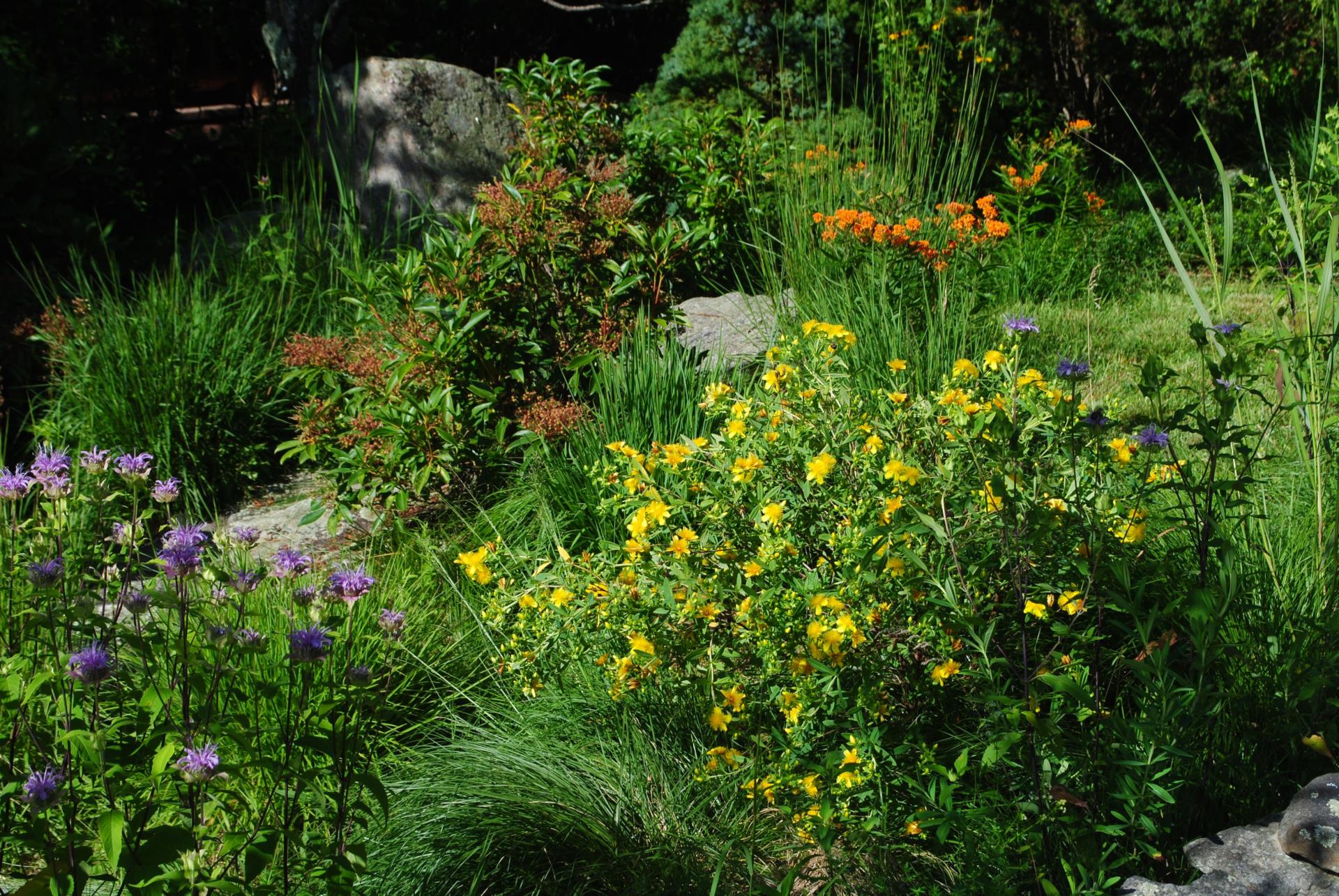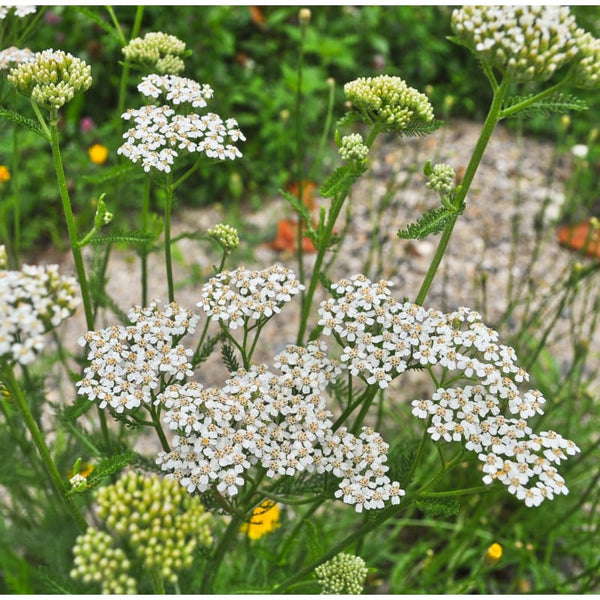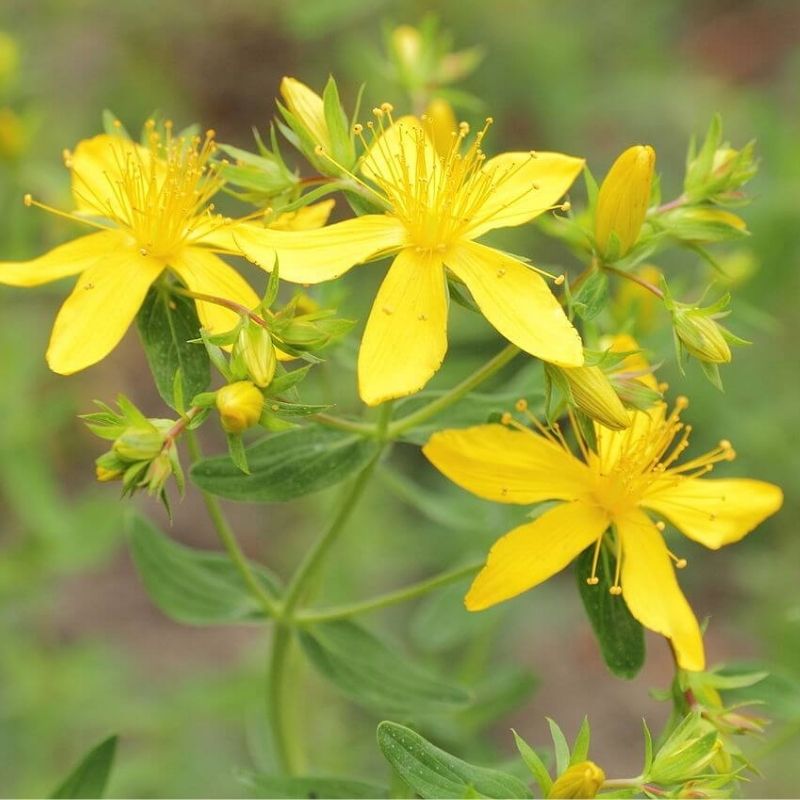The Best Companion Plants For St John's Wort
St. John's wort is a beautiful and versatile plant that can add a splash of color to any garden. It is also a valuable medicinal herb, with a long history of use for treating depression, anxiety, and other conditions.
When choosing companion plants for St. John's wort, there are a few things to keep in mind. First, you want to choose plants that will complement the St. John's wort's sunny, well-drained location. Second, you want to choose plants that will not compete with the St. John's wort for nutrients or water.
Here are some of the best companion plants for St. John's wort:
- Asters: Asters are a popular choice for companion plants because they attract pollinators, such as butterflies and bees. They also come in a wide variety of colors, so you can find one that will complement the St. John's wort's flowers.

- Butterfly bushes: Butterfly bushes are another great choice for companion plants because they attract butterflies and other pollinators. They also have a long blooming season, so you will enjoy their flowers all summer long.

- Coneflowers: Coneflowers are a popular choice for companion plants because they are drought-tolerant and attract pollinators. They also come in a variety of colors, so you can find one that will complement the St. John's wort's flowers.

- Echinacea: Echinacea is a popular choice for companion plants because it is also a medicinal herb. It is known for its immune-boosting properties, and it can also be used to treat wounds and infections.
- Goldenrod: Goldenrod is a popular choice for companion plants because it attracts pollinators and deters pests. It also has a long blooming season, so you will enjoy its flowers all summer long.

- Yarrow: Yarrow is a popular choice for companion plants because it is a hardy plant that can tolerate a variety of conditions. It also attracts pollinators and deters pests.

In addition to these plants, there are many other companion plants that would work well with St. John's wort. When choosing companion plants, it is important to consider the climate, soil type, and other plants in your garden.
St. John's wort is a beautiful and versatile plant that can be used in a variety of ways, including companion planting. Companion planting is the practice of planting different types of plants together to benefit each other. When choosing companion plants for St. John's wort, it is important to consider the plant's needs and preferences.
Some good companion plants for St. John's wort include:
- Yarrow: Yarrow is a tall, flowering plant that attracts pollinators, which can help to improve the pollination of St. John's wort.
- Bee balm: Bee balm is another flowering plant that attracts pollinators. It also helps to repel pests, which can protect St. John's wort from damage.
- Chives: Chives are a low-growing herb that can help to deter pests from St. John's wort. They also add flavor to dishes, so you can enjoy them both in your garden and in your kitchen.
For more information about St. John's wort companion planting, please visit Gardenia Inspiration.
FAQ of st john's wort companion planting
1. What are the benefits of companion planting with St. John's wort?
St. John's wort is a versatile plant that can be used in a variety of companion planting schemes. It attracts beneficial insects, such as pollinators and ladybugs, which can help to control pests. It also helps to suppress weeds and improve soil health.
2. What are some good companion plants for St. John's wort?
Some good companion plants for St. John's wort include:
- Coneflowers: Coneflowers attract pollinators and help to deter pests.
- Yarrow: Yarrow helps to improve soil drainage and suppress weeds.
- Lavender: Lavender repels pests and helps to attract beneficial insects.
- Salvia: Salvia attracts pollinators and helps to improve soil health.
- Bee Balm: Bee balm attracts pollinators and helps to suppress weeds.
3. What are some bad companion plants for St. John's wort?
Some bad companion plants for St. John's wort include:
- Nightshade: Nightshade is a poisonous plant that can be harmful to St. John's wort.
- Tomatoes: Tomatoes can compete with St. John's wort for nutrients.
- Potatoes: Potatoes can also compete with St. John's wort for nutrients.
- Cucumbers: Cucumbers can attract pests that can also harm St. John's wort.
4. How far apart should St. John's wort plants be planted?
St. John's wort plants should be planted 18-24 inches apart. This will give them enough room to grow and spread.
5. When is the best time to plant St. John's wort?
St. John's wort can be planted in the spring or fall. However, it is best to plant it in the spring if you live in a cold climate.
Image of st john's wort companion planting
- Wood's Purple Aster: This daisy-like flower attracts butterflies and other pollinators. It also helps to deter pests like aphids and spider mites.

- Hairy Wild Petunia: This low-growing plant has fragrant flowers that attract bees and butterflies. It also helps to suppress weeds.

- Montrose White Calamint: This mint-like plant has white flowers that attract bees and butterflies. It also helps to repel mosquitoes.

- Pixie Meadowbrite™ Coneflower: This coneflower has bright yellow flowers that attract butterflies and other pollinators. It also helps to deter deer.

- Yarrow: This hardy perennial has daisy-like flowers that attract butterflies and other pollinators. It also helps to improve soil drainage.

Post a Comment for "The Best Companion Plants For St John's Wort"